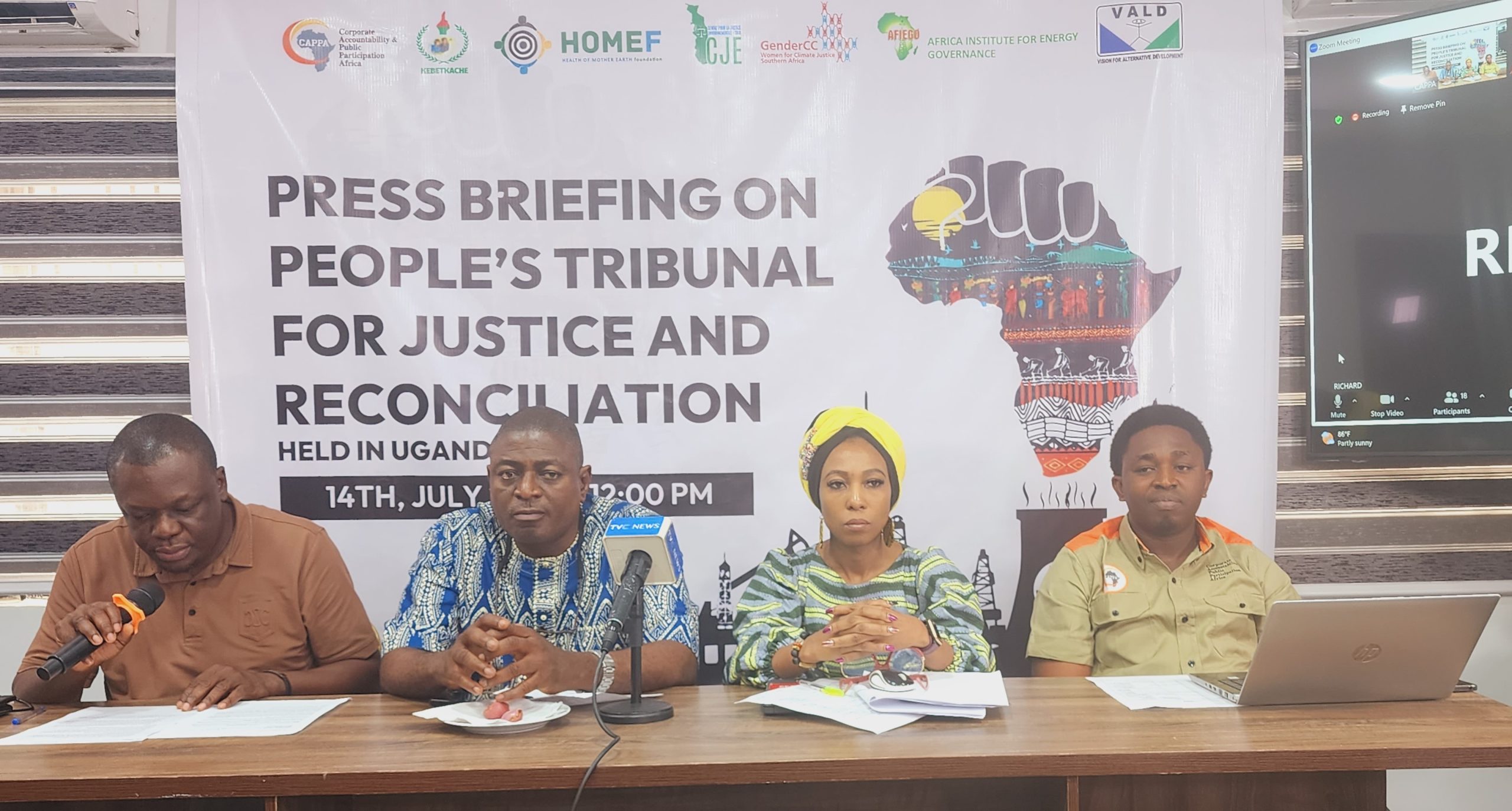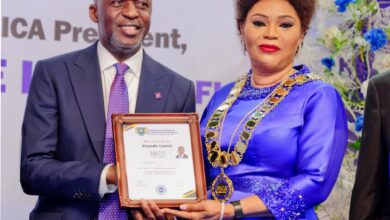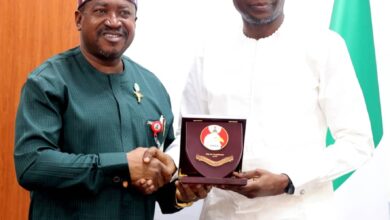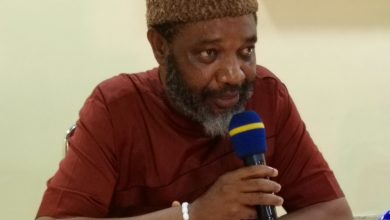
By Edu Abade
In its resolve to address continuing environmental infraction on the African continent, especially in oil producing countries, the Make Big Polluters Pay (MBPP) Africa coalition organised a “People’s Tribunal for Justice and Reconciliation” in Buliisa District, Uganda on May 16, 2023.
During a media briefing in Lagos, at the weekend, the coalition explained that the mock tribunal was informed by the need to put global spotlight on TotalEnergies for alleged intimidation, displacement, and various environmental and human rights abuses through the Tilenga Oil project and the East African Crude Oil Pipeline (EACOP) in Kasinyi, Kigoya, Kirama, Kiyere, Kigwera and other villages in the Buliisa District of Uganda.
Launched in 2019, members of the coalition for the global campaign include the Corporate Accountability and Public Participation Africa (CAPPA), Home of Mother Earth Foundation (HOMEF), Centre for Environmental Justice, Togo, Gender CC South Africa–Women for Climate Change and Vision for Alternative Development (VALD), Kebetkache Women Development Centre in Nigeria, Africa Institute for Energy Governance (AFIEGO) and Africa Centre for Advocacy (ACA), among others.
The tribunal, which was made up of twelve observers and five jury members, heard directly from no fewer than 10 affected community members and also created a platform to uplift struggles of extractive activities and advances regional precedents for addressing liability and accountability.
Eminent jurors who interrogated the victims and arrived at a verdict at the end of the tribunal are Director of HOMEF, Nnimmo Bassey from Nigeria; Executive Director, Centre for Environmental Justice, Togo, Kwami Kpondzo; Associate Director of CAPPA, Aderonke Ige, as well as representatives of affected communities, Kabonesa Sophia and Bamuturaki William.
Affected persons are alleged to have for years sought justice within a multitude of avenues including filing cases in local courts of law, reporting to local authorities, filing complaints with the grievance handling groups established, etc to stop the alleged impunity of TotalEnergies, but all have been in vain.
After hearing from the victims, the tribunal concluded that TotalEnergies has cases to answer for alleged human and environmental rights abuses and other abuses relating to oil exploration activities in Kasinyi and the other villages.
Chief Executive Officer of Africa Institute for Energy Governance (AFIEGO), Dickens Kamugisha, said: “The testimonies from the affected communities reflect growing impacts that the discovery of commercial oil reserves in Uganda have caused. The alleged cases of land grabs, illegal displacements and environmental degradation portend grave danger to local communities and their voices must be heard.”
Speaking at the media briefing in Lagos, Executive Director of CAPPA, Akinbode Oluwafemi, stressed the need to build a stronger and more formidable African coalition to hold multinational oil corporations accountable for environmental violations on the continent, while Aderonke Ige insisted that TotalEnergies must deal with communities collectively in addressing their needs for negligence, compensations and resettlement.
On his part, Director of Programmes, Corporate Accountability and Public Participation Africa (CAPPA), Philip Jakpor, said: “For the Make Big Polluters Pay Africa Coalition, the Peoples Tribunal for Justice and Reconciliation is our own way of amplifying the stifled voices of local communities impacted by fossil fuel extractive corporations in Uganda.
“But the tales from other countries are not different. From Nigeria’s heavily polluted Niger Delta to South Africa, Ghana and now Uganda the story is the same. Local people carry the burdens while the corporations plunder and make profit. In most cases, the government also looks away.”
Testifying to the highhandedness and negligence of TotalEnergies in the communities, one of the victims, Barikenda Fred of Kirama Village, Kigwera Sub-County in Buliisa District: “TotalEnergies agreed with me that they were going to construct a house elsewhere and resettle me in it so they can take over my land for their activities. Shortly after that I was put under pressure to vacate the land but I objected to this because I have nowhere else to go. TotalEnergies then fenced up my home and brought trucks, which cleared my entire garden and the areas surrounding my home and to date, I have not yet been resettled.”
Another victim, Nyamagunge Beatrice of Kigoya Village in Buliisa District, said: “TotalEnergies first told us they wanted land measuring 30 (Thirty) meters wide for the pipeline and a buffer zone of 30 meters of both sides of it. However, when they demarcated, we found out that we were only seven meters away from the demarcated area. We then complained to TotalEnergies, but their response was that we are in the 200 meter buffer zone and further, we shall not be compensated or resettled.”
Delivering their verdict, the groups restated that the various alleged violations of rights registered in the 10 cases presented by the project-affected persons are instances of systematic repression, undue influence, duress and resort to intimidation of communities and peoples who appear helpless in the face of a system that has failed and is still failing to protect them.
The Tribunal, therefore, unanimously agreed that projects such as the Tilenga project have direct consequences such as ecological damage, land grabbing, corruption, corporate capture and greenwashing.
It also restated that there is an urgent need by TotalEnergies to respect people’s dignity and rights, especially those of local communities that have been allegedly affected by their activities and put in place immediate remedies to avoid further actions, individually and collectively.









